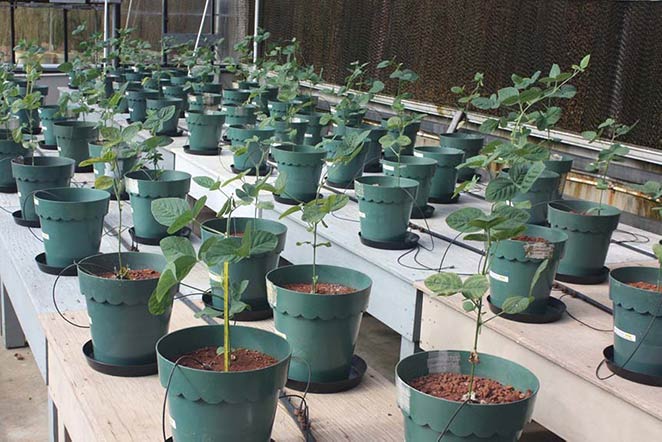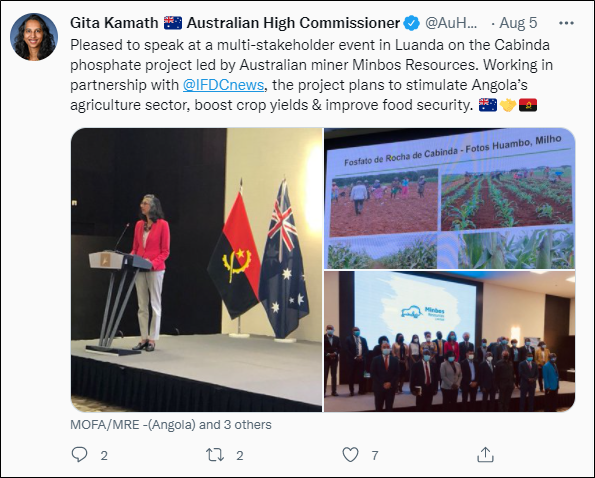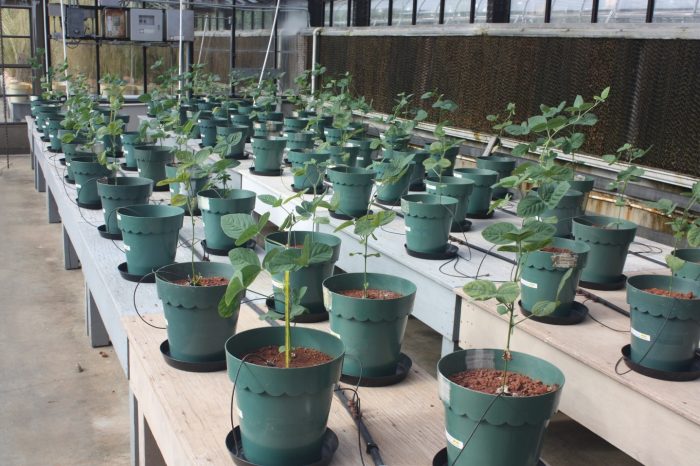AAMEG Africa Awards 2021: Best Innovation in Corporate Social Development Nominee – Minbos Resources
By AAMEG | 29 September 2021

ANGOLA FERTILISER AND FARM PRODUCTIVITY PROGRAM (AFFPP)
Company Description
SUMMARY
Minbos is an exploration and development Company with a vision to build a nutrient supply and distribution business that stimulates agricultural production and promotes food security in Angola and the broader Economic Community of Central African States (ECCAS), through development of its Phosphate Ore Project.
Minbos is targeting regional supply and manufacture of all NPK components and plans to build an NPK blending plant at Futila (Cabinda) to take advantage of its position as a primary producer of Phosphate granules.
INDUSTRY
High impact/sustainable fertilizers and nutrients.
AREA OF OPERATION/LOCATION OF PROJECTS
- Country: Angola
- Province: Cabinda
- Operations: Cabinda
The Cácata deposit (Fig. 1) is a uniquely low-impact mining project, with a relatively small environmental footprint (and long operational life. The Cabinda Phosphate Project’s planned small open pit operation at the Cácata deposit measures less than 2km in length with the mining amenities positioned around the pit and close to a local workforce. The mine will also be located right next to the sealed dual carriage highway which is 50km from the proposed granulation plant at Port de Caio.
Phosphate Rock to be shipped from the Cácata Phosphate deposit to Futila, just 120 minutes by dual carriageway. Minbos is targeting regional supply and manufacture of all NPK components and plans to build an NPK blending plant to take advantage of its position as a primary producer of Phosphate granules.

Figure 1 – Minbos Resources proposed site for Phosphate Granulation Plant, including phosphate deposit, energy port and airport infrastructure
Summary of Corporate Social Development Initiative
Angola Fertilizer and Farm Productivity Program (AFFPP)
- Minbos Resources and the International Fertlizer Development Centre (IFDC) signed an agreement to develop and grow the Small Holder Farmer market in Angola.
- The IFDC is an independent non-profit organization that combines innovative research, market systems development, and strategic partnerships to spread sustainable agricultural solutions for improved soil health, food security, and livelihoods around the world and empowers Small Holder Farmers.
- Across Africa, the IFDC runs country-scale agricultural projects, introducing farmers to improved agricultural practices, fertilizer technologies and facilitation of market access.
- AFFPP a joint multi-year project designed to support the development of the local fertilizer market in Angola.
- Minbos will develop a 150,000tpa phosphate granulation plant with potential to triple production capacity after 5 years.
- The granulation plant will have the ability to add micronutrients including Sulphur and provide a product to be blended into competitively priced NPK products which are more appropriate for Angolan soil, than the currently used fertilizers (mainly 12-24-12 and Ammonium Sulphate).
- The fertilizer will also deliver an innovative fertiliser product that is tailored to meet the growing agricultural demand from Angola and regional markets.
- Minbos is also studying the possibility of erecting a blending plant in Luanda or negotiate some form of partnership with existing plants in Angola.
- The project is expected to generate $US 1 billion of revenue over a 20-year life, the phosphate granules produced will be supplied to NPK blending plants for use by farmers across all off Angola.
AFFPP impact:
- Reach 3-4 million smallholder farmers
- Develop a fertilizer market of 500,000Mt
- Double crop productivity
- Urban: improve food security, reduce food costs and imports
- Cabinda: Investments, building industry, job creation
- Angola remains one of the world’s great untapped agricutural regions, with +35 million hectares of arable land, high rainfall and some of lowest rates of fertilizer use globally.
- Partnership to leverage the IFDC’s innovative research, market expertise and strategic partners to identify sustainable solutions for soil and plant nutrition for the benefit of Small Holder Farmers, local communities and the environment.
- IFDC to work with national and private parties to create or expand Small Holder fertilizer demand in select parts of Angola. Productivity gains are expected to yield marketable crop surpluses, encouraging further farmer investment in fertilizers.
- The IFDC recently completed an agricultural productivity program in Burundi, which saw fertilizer usage grow from 10,000tpa to nearly 50,000tpa. The program increased agricultural productivity and raised income for 865,666 farming households.
- Minbos Phosphate Fertilizer to underpin the fertilizer input component of the IFDC Angola Project, reaching more than 4 million Small Holder Farmers.
- Given the large Small Holder Farmer market in Angola and the IFDC’s strong record of delivering high-impact projects which boost fertilizer usage, demand is expected to exceed the nameplate capacity of 150,000tpa.
IFDC Model

IFDC’s interest in Angola
- Unique opportunities – vast agricultural potential
- Angola has land, good climate, and a market for agriculture
- Angola is importing large volumes of food (loss of Forex)
- Fertilizer use is very low (approx. 4 kg nutrients/ha)
- All fertilizers are imported (loss of Forex)
- Angola has phosphate resources (Minbos)
- Government prioritizes agriculture + fertilizer use
- Realizing this potential
- Current yields can triple
- Increase in fertilizer use is necessary
- Local fertilizer production: reduce costs, improve quality + availability
- Build farmer knowledge on fertilizer use
- Develop fertilizer distribution system to reach farmers
- Farming as a business: Link farmers to product/output market to generate revenue
Challenges
- Trying to complete a Definitive Feasibility Study, Greenhouse Trials, Site location and building Government Support during a pandemic.
Initiation date for the AFFPP
11th December 2020 – Current and ongoing.
Social Innovation
AFFPP Initiative
- With around 10 percent of Angola’s arable land currently under cultivation, the country’s agricultural productivity and crop yields are extremely low. Given that more than half of Angola’s poor are located in rural areas and depend almost exclusively on agriculture for their livelihood, it is fundamental to boost the agriculture sector.
- Minbos will locally produce and supply fertilizer to small African farmers with less than 10 hectares of land, a market that has traditionally had to import higher cost alternatives -targeting 4 million small holder farmers through the AFFPP.
Understanding of the community or regional socio-economic development priorities.
The Angolan Fertilizer and Farm Productivity Program intends to:
- Support sustainable development priorities of the Angolan Government, and more specifically the Plano Integrado de Aceleração de Agricultura e Pesca Familiar “PIAAPF” 2020;
- Support the mapping soil fertility and development of fertilizer recommendations needed to increase productivity of different crops;
- Collaborate with Government to maximize the impact of agricultural policies and interventions to increase smallholder productivity;
- Partner with existing private transport, NPK blending and distribution companies to enable the delivery of competitively priced and appropriately formulated fertilizer products to the customers;
- Double the productivity of 4 million small holder farmers increasing food and nutrition security and reducing food importation.
Leadership in environmental, social and governance practice.
The Cabinda Phosphate Project inherently brings positive social and environmental impacts and is uniquely positioned to drive sustainable agricultural growth across Middle Africa.
Minbos has adopted the World Economic Forum ESG framework and has set up an impact measurement plan for each sustainability area which includes governance, anti-corruption practices, ethical behaviour, child labour, GHG emissions, land use, ecological sensitivity, water consumption, diversity and inclusion, pay equality and local tax payments.
To ensure that Minbos can measure, monitor, and report on its ESG progress, the Company has engaged impact monitoring technology platform “Socialsuite” to streamline the outcomes measurement and ongoing ESG reporting process.
Collaboration & Engagement
Cross-sector collaboration and partnerships.
- Agreement with the International Fertilizer Development Centre, global leader in developing and delivering African fertilizer projects.
- IFDC is an international not-for-profit organisation, dedicated to scientific innovations that increase global food production, protect the environment and empowers Small Holder Farmers.
- Agreement provides the platform to develop a joint proposal for a multi-year project designed to support the development of the local fertilizer market in Angola.
Stakeholder engagement.
- High-level stakeholder information session held in Luanda, Angola’s Capital, in partnership with the IFDC, with the assistance of the Ministry of Agriculture.
- Attendees included Angolan Government Ministeries, a Representative from the Office of the President of Angola, a Representative from the Angolan Sovereign Fund, Australia’s Ambassador to Angola, other embassies and Plenipotentiary’s and representatives from high-profile Non-Government Organisations (NGO’s).
- Minbos CEO, Lindsay Reed, delivered a presentation which included an overview of the Cabinda Project, mining potential, Futila Granulation Plant, fertilizer blend, market development and local employment opportunities.
- IFDC Director of Partnerships, Rob JJ. Groot, provided an overview of the Angola Fertilizer and Farm Productivity Program (AFFPP) which will initially drive Minbos offtake and deliver a high-impact project for Angola Small Holder Farmers (Grow to Eat).
- High-profile attendees included Ministry Representatives:
Angolan Government Ministries: Ministry of Agriculture, Ministry of Economics and Planning, Ministry of Energy and Water, Ministry of Mineral Resources, Oil and Gas, Ministry of Commerce and Industry and the Ministry of Transport.
Embassy & Consulates: Australia, Netherlands, DRC and France.
NGO’s: The World Bank, The Food and Agriculture Organization (FAO).
Consultation methodology and processes.
Through ongoing engagement, the Government of Angola has demonstrated its strong support for our Fertilizer Project. Their support has allowed Minbos to deliver a fertilizer product which will impact the lives of millions of Angolan small holder farmers.
Our partners at the IFDC, especially Mr Rob JJ Groot, took valuable time to fly to Angola during a pandemic and deliver invaluable support through their promotion of the AFFPP and Minbos’ involvement.
What is now clear from subsequent meetings, is that our interaction and meetings with the Government has coalesced support behind both our plans and that of the AFFPP. It’s now clear that Minbos has the support of the Government to produce not only Rock Phosphate Fertilizer, but to execute a range of Agri-business opportunities.
Community Benefits
Tangible outcomes/benefits that have improved the quality of life to the host community.
- IFDC to work with national and private parties to create or expand Small Holder fertilizer demand in select parts of Angola. Productivity gains are expected to yield marketable crop surpluses, encouraging further farmer investment in fertilizers.
- The Cabinda Phosphate Project will commence production at 50,000tpa. Given the large Small Holder Farmer market in Angola and the IFDC’s strong record of delivering high-impact projects which boost fertilizer usage, demand is expected to exceed the nameplate capacity of 150,000tpa.
- Over 10 years, the IFDC expects Minbos’ and the AFFPP to create 20,000 jobs in fertilizer distribution and agribusiness for a total economic value of more than US$2 billion.
Human development approach to investing in local capabilities, skills and experience.
- Produce fertilizers from local resources.
- Competitively priced fertilizer
- Improved quality
- Improved availability / higher volumes
- Reduced imports
- With the right fertilizers in right quantities, smallholder yields can triple
- Strong policies to support fertilizer sector.
- Subsidy policy to provide purchasing power (‘vouchers’) targeted to smallholders
- Over time government can withdraw from fertilizer procurement and distribution
- Introduction of quality standards, grades, compliance
- Integration in regional fertilizer policies
- Realizing the potential of agriculture
- Build farmer knowledge on fertilizer use and soil fertility management.
- Build/strengthen Extension Services (public + private)
- Soil sampling and soil fertility mapping ? IT-based recommendations for main crops
- Develop limited number (4?) of ‘best bet’ fertilizers to replace NPK 12-24-12
- Large scale demonstrations (10,000), farmer field schools
- Design/introduce cellphone-based support learning and support systems
- Develop input and output markets.
- Develop private sector fertilizer distribution to reduce last-mile delivery
- Farming as a business: link farmers to product/output market to generate revenue
- Agribusiness: aggregation and processing capacity for rural and urban markets
- Introduce credit systems and credit guarantees
Evaluation indicators to measure quality, effectiveness and success criteria.
- Adoption of a set of Environmental, Social and Governance (ESG) metrics and disclosures as released by the World Economic Forum (WEF).
- The Board of the Company resolved to adopt the WEF ESG framework and instructed management to set up an impact measurement plan for each sustainability area which includes, but is not limited to, governance, anti-corruption practices, ethical behaviour, child labour, GHG emissions, land use, ecological sensitivity, water consumption, diversity and inclusion, pay equality and local tax payments.
- To ensure that Minbos can measure, monitor, and report on its ESG progress, the Company has engaged impact monitoring technology platform “Socialsuite” to streamline the outcomes measurement and ongoing ESG reporting process. The Company’s goal is to demonstrate progress on its ESG scorecard, but more broadly, requires progress on a range of ESG benchmarks as set out by the WEF’s ESG White Paper.
While the Cabinda Phosphate Project is inherently impact positive, the adoption of the WEF framework has already paid ESG dividends. Work on the Definitive Feasibility Study has de-risked our ESG liability, including the potential integration of a solar plant to power the granulation facility, dramatically reducing water soluble phosphate application and the potential for carbon soil sequestration. The Company will update market regularly on its ESG progress and seek to ensure that the Cabinda Phosphate Project remains an impact investment for shareholders and local communities.
Shared value created that transformed a community’s ability to confront a challenge or opportunity.
Tenacity – The execution of the Mineral Investment Contract was the culmination of more than 2 years of work by the board and the Minbos team to firstly, re-build government support lost during the joint venture years and secondly, to successfully present a plan for the Cácata Concession that unlocks its potential for the region. The Company is confident that this project will change Angola, bringing benefits for both the region and delivering value for Minbos shareholders.
Sustainability
Future Social investment thriving beyond the life of the mine or project.
- The IFDC forecast parabolic short, medium and long-term fertilizer forecast for Angola, with the market to grow 10x and quickly exceed 1Mtpa off the back of the AFFPP program, including:
GROW TO EAT: Short-term market potential (1-5yrs): 200,000Mt
GROW TO SELL: Medium-term market potential (5-10yrs): 400,000Mt
GROW TO EXPORT: Long-term market potential (+10yrs): >650,000Mt
- Over 10 years, the IFDC expects Minbos’ and the AFFPP to create 20,000 jobs in fertilizer distribution and agribusiness for a total economic value of more than US$2 billion.
- Minbos has the support of the Government to produce not only Rock Phosphate Fertilizer, but to execute a range of Agri-business opportunities.
- Minbos lodged an Australian provisional patent application for a new phosphate rock fertilizer blend, with the potential to produce a 100% organic phosphate fertilizer using less reactive phosphate rocks.
- New phosphate rock fertilizer blend promotes the early release of phosphate nutrients from phosphate rock, potentially eliminating Monoammonium Phosphate (MAP) from the proposed Cabinda Phosphate granule formulation – delivering a 100% organic fertilizer blend.
Production of the new phosphate rock fertilizer blend can potentially be applied to the proposed Minbos Granulation Plant and be incorporated in the production profile from commissioning in 2022.
Other useful supporting information
News articles:
• MNB’s Angola Fertiliser development “a Project of National Importance”
• The Most Undervalued Stock In Our Portfolio
• MNB “Seals the Deal” with Angolan Government
• Phosphate Price Surges above Highest Prediction in MNB Scoping Study

Figure 2 – Twitter Post, Gita Kamath speaking at the Minbos Showcase for the AFFPP

Figure 3 – Cabinda Phosphate Project, Granulation Plant design and site layout

Figure 4 – Minbos Fertilizer Field Trials Underway at the IFDC headquarters using local Angolan soils.

Figure 5 – Crux Investors Interview with Minbos CEO Lindsay Reed
-
11 December 2024
Members End Of Year Celebration
-
9 December 2024
Member Spotlight: West African Resources Shines at MERC 2024
-
3 December 2024
AAMEG pleased to announce two new board members for 2024-2025
-
30 October 2024
International Mining and Resources Conference (IMARC) Conference
- News Archive

